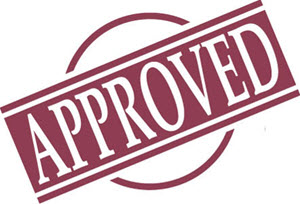A payday loan is a small, short-term loan that makes it possible for a borrower to receive money today and pay it back on his or her next payday. In some countries, the term payday loan is used quite broadly, and has come to include many types of small, short-term loans regardless of whether they are tied to the borrowers payday or not.
 A payday loan company will usually require some proof of income from the lender, e.g. income from employment, regular payments from an insurance company or some type of regular income from the welfare system.
A payday loan company will usually require some proof of income from the lender, e.g. income from employment, regular payments from an insurance company or some type of regular income from the welfare system.
The rules regarding payday loans varies a lot between different countries and states. To prevent usury, some jurisdictions have outlaw payday loans, while others have set a cap on the annual percentage rate (APR). There are also plenty of countries were the rules regarding payday loans are lax, or where payday loan companies operates in gray areas of society where they are unlikely to be bothered by official authorities even if they break consumer protection laws.
If you are contemplating getting a payday loan, it is advisable to research the rules applicable in your specific part of the world. It is also a good idea to compare the terms and conditions offered by several payday loan companies, both online and offline. Last but not least, the cost of a payday loan should be compared to the cost of other possible solutions to the financial emergency, e.g. using a credit card, asking for an advance from your employer, setting up a payment plan, or defer spending until after your payday.
Payday loan fees and interest
 Payday loans tend to have rather large fixed-fees. It is not unusual for a $100 payday loan to have a $25 fixed fee.
Payday loans tend to have rather large fixed-fees. It is not unusual for a $100 payday loan to have a $25 fixed fee.
Payday loan companies charge fixed-fees because they do not earn much interest on short-term loans, not even when the interest rate is really high. Let’s say for instance that you are offered a payday loan with a 20% annual percentage rate (compounded weekly). This might sound like a high interest rate, but if you repay your loan within seven days the lender only gets $0,38 in interest on your $100 loan. $0,38 is probably not enough to even cover the costs of administering your loan.
Because of this, it is very important to not look solely on the interest rates when you compare various payday loan offers, but also on the fixed fees. For a short-term loan, a high interest rate combined with a low fixed-fee can be better for the borrower than a lower interest that comes with a high fixed-fee.
Getting a payday loan
Traditionally, payday loan companies have had physicals offices that you could visit to obtain a payday loan, often in conjunction with pawnshops, money wiring facilities and similar. Today, many payday loan companies – and other companies offering small short-term unsecured loans – have moved to the internet where they offer payday loans directly on their websites. Payday loans are also available through cell phones (so called SMS loans).
The traditional method of keeping physical stores of business is however far from extinguished and physical payday loan facilities still exist throughout the world, especially in countries and areas where few people have access to or want to use bank accounts. Applying for a payday loan online or through SMS will typically entail having money deposited into your bank account, while physical payday loan facilities still tend to give their customers cash in hand.
Post-dated checks
 In countries where checks are still in common use, such as the USA, many payday loans are not really completely unsecured loans since the payday loan company will require a type of security in the form of a post-dated check.
In countries where checks are still in common use, such as the USA, many payday loans are not really completely unsecured loans since the payday loan company will require a type of security in the form of a post-dated check.
This is how it works:
- You want to borrow $100 and pay back on the 1st of August when you receive payment from your employer. The fee + interest rate for borrowing $100 until the 1st of August is $28.
- Before you receive your $100 from the payday loan company, you must write them a check for $128. This check should be post-dated, with August 1st as the due date.
- If you don’t return on August 1st to repay your loan, the payday loan company will cash the check.If you don’t have any money in your check account, the bank will charge you a fee for the overdraft.
This article was last updated on: August 25, 2014
